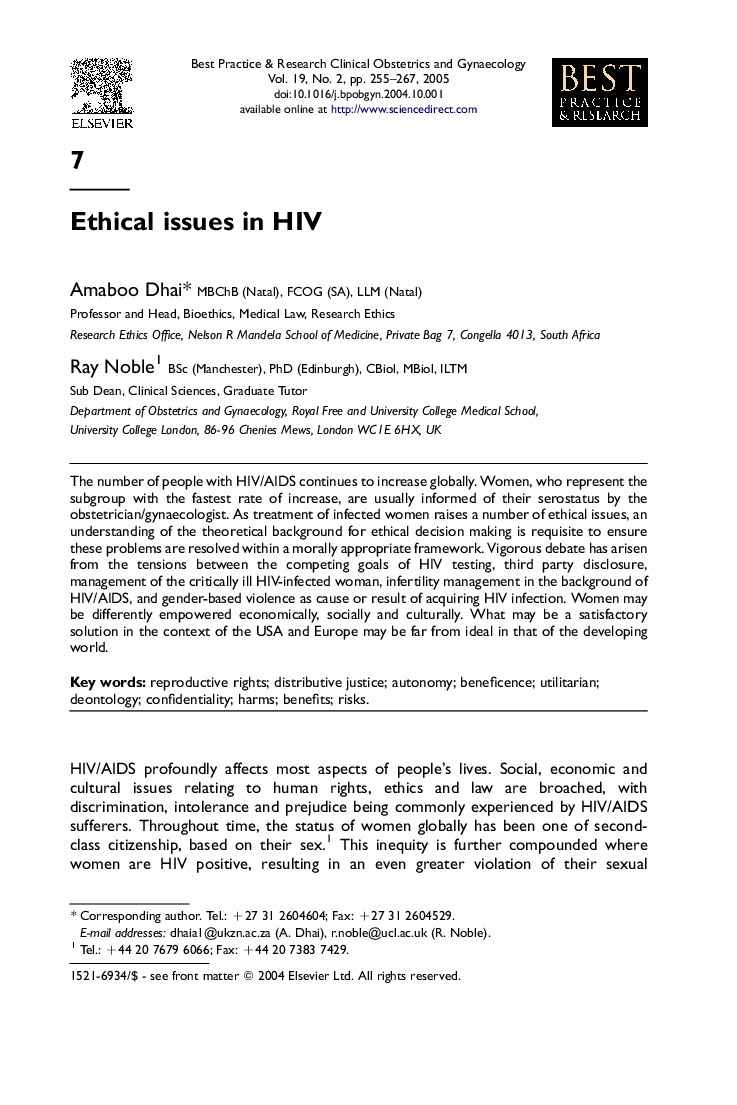| Article ID | Journal | Published Year | Pages | File Type |
|---|---|---|---|---|
| 9315704 | Best Practice & Research Clinical Obstetrics & Gynaecology | 2005 | 13 Pages |
Abstract
The number of people with HIV/AIDS continues to increase globally. Women, who represent the subgroup with the fastest rate of increase, are usually informed of their serostatus by the obstetrician/gynaecologist. As treatment of infected women raises a number of ethical issues, an understanding of the theoretical background for ethical decision making is requisite to ensure these problems are resolved within a morally appropriate framework. Vigorous debate has arisen from the tensions between the competing goals of HIV testing, third party disclosure, management of the critically ill HIV-infected woman, infertility management in the background of HIV/AIDS, and gender-based violence as cause or result of acquiring HIV infection. Women may be differently empowered economically, socially and culturally. What may be a satisfactory solution in the context of the USA and Europe may be far from ideal in that of the developing world.
Keywords
Related Topics
Health Sciences
Medicine and Dentistry
Obstetrics, Gynecology and Women's Health
Authors
Amaboo (Professor and Head, Bioethics, Medical Law, Research Ethics), Ray (Sub Dean, Clinical Sciences, Graduate Tutor),
